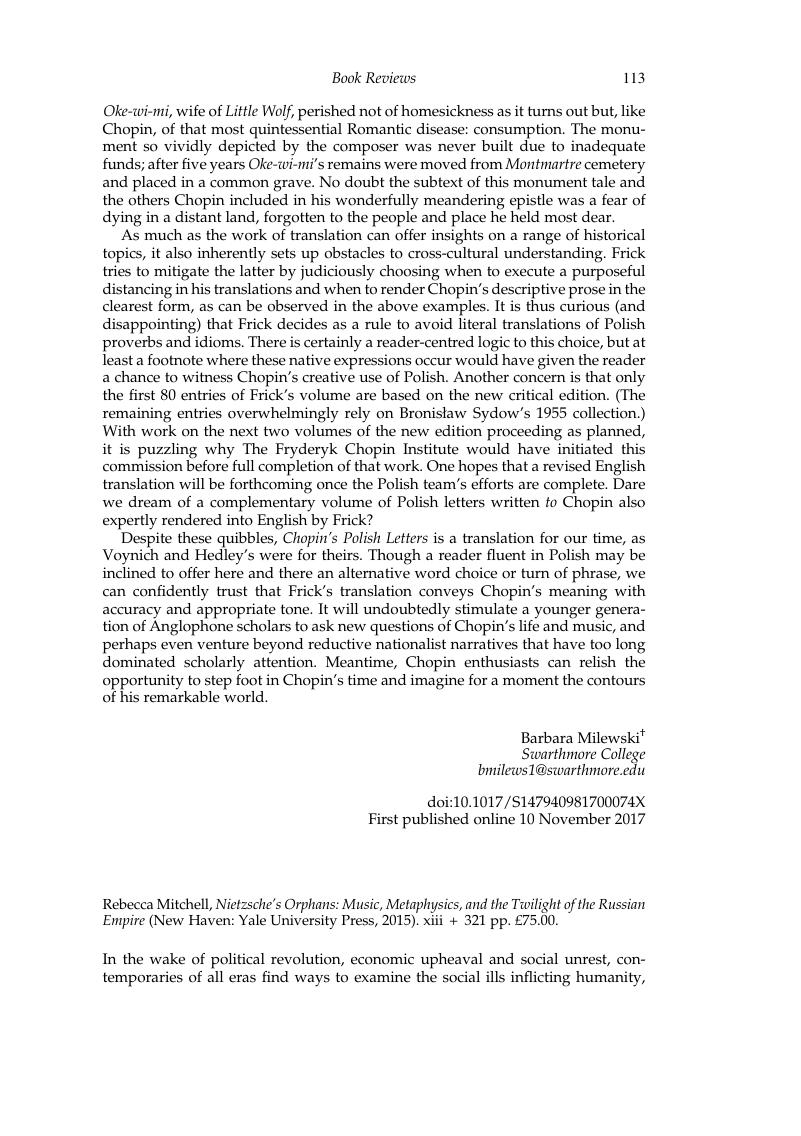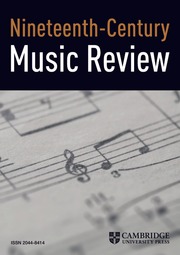No CrossRef data available.
Article contents
Rebecca Mitchell, Nietzsche’s Orphans: Music, Metaphysics, and the Twilight of the Russian Empire (New Haven: Yale University Press, 2015). xiii + 321 pp. £75.00.
Review products
Published online by Cambridge University Press: 20 December 2018
Abstract

- Type
- Book Reviews
- Information
- Copyright
- © Cambridge University Press, 2018
References
1 For studies that explore Nietzsche’s influence in Russia, see Rosenthal, Bernice Glatzer, ed., Nietzsche in Russia (Princeton, NJ: Princeton University Press, 1986);Google Scholar Clowes, Edith W., The Revolution of Moral Consciousness: Nietzsche in Russian Literature, 1890–1914 (Dekalb: Northern Illinois University Press, 1988).Google Scholar
2 On the ‘emotional’ turn in Russian studies, see Steinberg, Mark D., ‘Melancholy and Modernity: Emotions and Social Life in Russia between the Revolutions’, Journal of Social History 41/4 (2008): 813–841;Google Scholar Reddy, William M. ‘Emotional Turn? Feelings in Russian History and Culture: Comment’ Slavic Review 68/2 (2009): 329–334;Google Scholar Plamper, Jan, ‘Introduction’, Slavic Review 68/2 (2009) 229–237.CrossRefGoogle Scholar
3 See, for instance, Nordau, Max, Degeneration (New York: D. Appleton and Company, 1895)Google Scholar; Hegel, Georg Wilhelm Friedrich, Fine Art, trans. by F. P. B. Osmaston (London: G. Bell and Sons, 1920).Google Scholar
4 For a key study of these biomedical discourses before and after 1917, see: Beer, Daniel, Renovating Russia: The Human Sciences and the Fate of Liberal Modernity, 1880–1930 (Ithaca: Cornell University Press, 2008).Google Scholar
5 On Beethoven’s heroic Soviet image, see Nelson, Amy, Music for the Revolution: Musicians and Power in Early Soviet Russia (State College, PA: Pennsylvania State University Press, 2004), pp. 187–190Google Scholar; Fairclough, Pauline, ‘“Symphonies of the Free Spirit”: The Austro-German Symphony in Early Soviet Russia’ in The Cambridge Companion to the Symphony, ed. by Julian Horton (Cambridge: Cambridge University Press, 2013): 358–375, esp. 363–66CrossRefGoogle Scholar.
6 For instance, see Chemodanov, Sergei, ‘O Betkhoven i sovremennosti’ [On Beethoven and modernity], Muzykal’naia nov’ 2 (1923): 14–16, esp. 14Google Scholar.




